The Hearing Voices Movement: Beyond Critiquing the Status Quo
Originally posted on: http://www.madinamerica.com/
I am thrilled to have been invited to write about the important and innovative work of the Hearing Voices Movement alongside so many eminent colleagues, critical thinkers and activists working together to bring about an essential revolution in the world of mental health.
We have just celebrated the anniversary of the rapidly expanding, global Hearing Voices Movement which was founded more than twenty-five years ago following the ground-breaking research of Professor Marius Romme and Dr Sandra Escher. Romme and Escher have advocated for a radical shift in the way we understand the phenomenon of Hearing Voices; in contrast to traditional, biomedical psychiatry which views voices as an aberrant by-product of genetic, brain and cognitive faults, their research has firmly established that voices make sense when taking into account the traumatic circumstances that frequently provoke them (Romme and Escher, 1989, 2000, 2009, 2011). While ‘auditory hallucinations’ is the preferred jargon within psychiatric literature, the term ‘hearing voices’, which uses ordinary, non pathologising language framed subjectively, has been reclaimed. This is part of a wider aim within the mental health user movement to decolonise medicalised language of human experience.
Romme and Escher’s research shows that the majority of people who hear voices have had some traumatic experience which they connect with hearing voices. Subsequent research has confirmed their findings and attests to what many of us with first-hand experience of madness have always known – bad things that happen to you can drive you crazy. However, despite the well-established link between hearing voices and traumatic life experiences, the Hearing Voices Movement explicitly accepts all explanations for hearing voices which may include an array of belief systems, including spiritual, religious, paranormal, technological, cultural, counter cultural, philosophical, medical, and so on. As well as this, we welcome people with a range of experiences, including people who see visions or have other unusual perceptions or sensations.
Within the Hearing Voices Network (HVN) in England which currently has the most well established national network, there are approximately 180 groups currently operating. Groups run mainly in the community but also within statutory and NGO sector services. These include acute psychiatric settings, adolescent services, low, medium and high secure settings. In addition a number of specialist groups for women, people from Black and minority ethnic communities, prisoners, children, young people and parents have also been established. As a respected British consultant psychiatrist recently said, “You clearly represent a movement and constituency that has gone well beyond offering a critique of the status quo and towards representing advocacy and example of alternative approaches which are increasingly being recognised as complimentary or better than traditional approaches”. (Roberts, 2013).
HVN creates sanctuary; safe spaces to share taboo experiences, where there are real possibilities for healing and growth. People are free to share and explore their experiences in detail including the content of what their voices say (Beavan and Read 2010), without the threat of censorship, loss of liberty or forced medication, a common feature of disclosure in traditional psychiatric settings.
As well as our group work, we raise awareness of the benefits of talking about voices, visions and other unusual experiences and the value of peer support. We promote this innovative approach to voice hearers, family members and mental health professionals. We regularly provide training to staff, support on-going research into hearing voices and allied subjects, and liaise with the media which has resulted in a number of positive broadcasts and publications about HVN and voice hearing, both nationally and internationally (Adams 2008; Dillon 2010a; Hilpern 2007; Kirsch 2007; Lakhani 2009: Smith 2007).
There are now Hearing Voices networks in 26 countries, across 5 continents: Australia, Austria, Belgium, Canada, Denmark, England, Finland, Germany, Greece, Holland, Ireland, Italy, Japan, Kenya, Malaysia, New Zealand, Norway, Palestine, Scotland, South Africa, Spain, Sweden, Switzerland, Uganda, USA and Wales. International developments are co-ordinated via INTERVOICE – the International Network for Training, Education and Research into Hearing Voices – an international organisation dedicated to spreading positive and hopeful messages about the experience of hearing voices across the world.
Representatives and members of the international networks meet annually, at the World Hearing Voices Congresses, to promote new developments, innovative practice, translation of materials, and to support activities in burgeoning countries and share a sense of community, solidarity and camaraderie. One of the fundamental strengths of the Hearing Voices Movement, which has led to its extraordinary success, is that it is based on mutually respectful relationships – authentic partnerships between experts by experience and experts by profession, working together to bring about the emancipation of voice hearers.
HVN’s starting point is that the crises that people experience are real and that they are happening for a reason which is directly connected to the person’s life. We endeavour to support people to make sense of the real events in their lives that may have precipitated their crisis. We show a genuine interest in the range of people’s inner, subjective experiences. When people describe experiences that are deemed ‘psychotic’ we look for the meaning in their madness. Sometimes people use metaphorical or symbolic language to convey their realities and sometimes they are talking literally about things that have happened to them. However crazy someone appears, we believe that they are making a meaningful attempt to survive maddening experiences.
Contrary to traditional approaches, HVN sees voice-hearing as significant, decipherable and intimately connected to a person’s life story. Consequently, we encourage and support people to listen to their voices and attest to their reality in order to better understand their meaning. We acknowledge that people are having normal reactions to abnormal stress. Instead of asking people – what is wrong with you? We ask them – what has happened to you? On a daily basis we hear stories of physical, sexual and emotional abuse, the impact of neglect, poverty and alienation, as well as of racism, sexism and classism. Those people, whose experiences do not fit so neatly into a category of trauma as it is currently understood, raise the question of developing our understanding of the huge range of painful and damaging experiences that can be inflicted on and endured by children and adults.
We show respect for the reality of the suffering that people have experienced, and a keen awareness of how this may limit their expression of feelings, ability to think clearly, or capacity to connect. A key part of our role is to magnify the voices of people who are not normally listened to, by promoting the belief that each person has a deep wisdom and expertise about managing and dealing with their own problems. We validate and support people’s resilience, creativity, stamina and emotional strengths, even when they themselves doubt the existence of these qualities.
Acknowledgment enables people to develop true insight into their own distress and suffering which leads to an increasing sense of meaning and purpose in their lives. We are interested in people’s subjective experiences – including their altered states of consciousness, unusual perceptions, ideas and ways of seeing and experiencing the world. When your own feelings, thoughts, experiences and bodily sensations, begin to make sense to you, insight is a natural consequence. When you understand your own ‘symptoms’ as meaningful and essential survival strategies, a more respectful and loving acceptance of yourself begins to emerge (Bullimore 2009; Dillon 2010b; Lampshire 2009; Longden 2010; McNamara 2011).
We recognise that recovery is an on-going process with no fixed end point and that each person’s recovery is unique. HVN recognises that crises may occur again because recovery is an evolving process, an expansive process not a reductive one which seeks to control and maintain people. We have faith in people’s inherent right and capacity to heal, to make mistakes, to learn and to grow. We know that there is much about human experience that we do not understand and we remain humble and curious and open to new ways of seeing the world. We are not interested in complying with social control or in servicing normality. ‘Instead of being a list of symptoms, with side effects on top, we are people who hear voices and see visions, have unusual thoughts, passionate feelings, intense experiences’(Dillon and May 2002). We celebrate our differences.
For many voice hearers and psychiatric survivors, active participation and social action supports and enhances the recovery process; having a shared survivor mission ( Herman, 1992), and becoming part of a collective voice creating change in the world, both inside and out, is healing, empowering and liberating. This is also true for many mental health workers, who have become increasingly disillusioned with an inadequate biomedical model, disturbed by the collusion demanded of staff in a mental health system driven by fear, control and bureaucracy. For them, becoming part of the Hearing Voices Movement also enables a recovery of meaning, purpose and optimism, a renewal of important values, a rediscovering of a sense of self. For all of us, the possibility of reconnecting to ourselves and each other as unique and equal human beings, is life affirming.
Questions, comments and/or reflections are welcome on this website or via Twitter @JacquiDillon
FOR FURTHER INFORMATION:
Intervoice – http://www.intervoiceonline.org/
Hearing Voices Network, USA: http://www.hearingvoicesusa.org/
Hearing Voices Network, England: http://www.hearing-voices.org/
References:
Adams, W. (2008). The Listening Cure. Time, 21 February.
Beavan, V. and Read, J. (2010). Hearing voices and listening to what they say. Journal of Nervous and Mental Disease 198: 201-5.
Bullimore, P. (2009). My personal experience of paranoia. Psychosis 2: 173-7.
Dillon, J. and May, R. (2002). Reclaiming experience. Clinical Psychology 17: 25-77.Dillon,
J. (2010a). www.radionz.co.nz/national/programmes/ninetonoon/20100414
Dillon, J. (2010b). The tale of an ordinary little girl. Psychosis 1: 79-83.
Herman, J. (1992). Trauma and recovery. New York: Basic Books.
Hilpern, K. (2007). How I beat the voices in my head. The Independent, Mar. 6.
Kirsch, M. (2007). Voices in your head? You may not be crazy. The Times, 23 January.
Roberts, G. (2013). Personal communication.
Lakhani, N. (2009). A first-class recovery. Independent on Sunday, 25 October.
Lampshire, D. (2009). Lies and lessons: ramblings of an alleged mad woman. Psychosis 1: 178-84.Romme, M. and Escher, S. (1989). Hearing voices. Schizophrenia Bulletin 15: 209-16.
Longden, E. (2010). Making sense of voices: a personal story of recovery. Psychosis 2: 255-9.
McNamara, J. (2011). Can we sit and talk? Poems stories and some words of advice. Psychosis 3: 167-71.
Romme, M. and Escher, S. (1989). Hearing voices. Schizophrenia Bulletin 15: 209-16.
Romme, M. and Escher, S. (2000). Making Sense of Voices. London: Mind.
Romme, M. Escher, S. Dillon, J. Corstens, D. Morris, M. (eds.). (2009). Living with Voices: 50 Stories of Recovery. PCCS Books.
Romme, M. and Escher, S. (eds) (2011). Psychosis as a Personal Crisis. London: Routledge.
Smith, D. (2007). Can you live with the voices in your head? New York Times, 25 March.

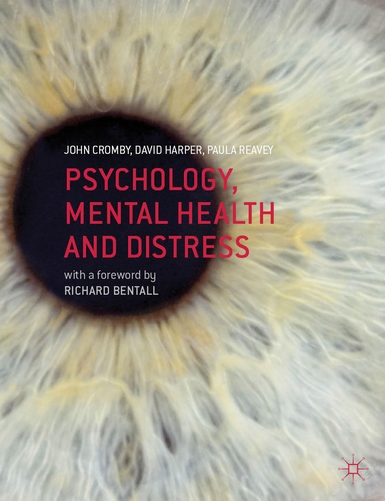
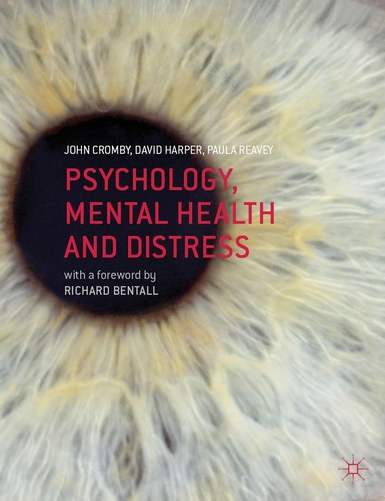
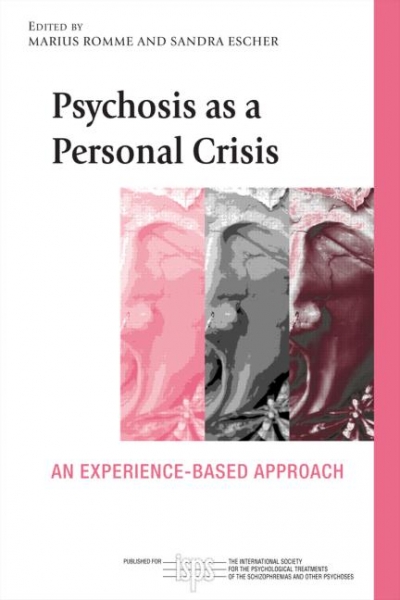
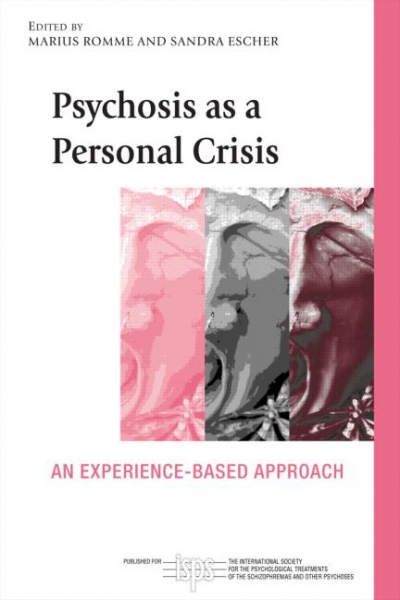





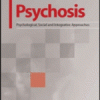 Psychosis: Psychological, Social and Integrative Approaches
Psychosis: Psychological, Social and Integrative Approaches Beside Mental Health Community Project
Beside Mental Health Community Project
